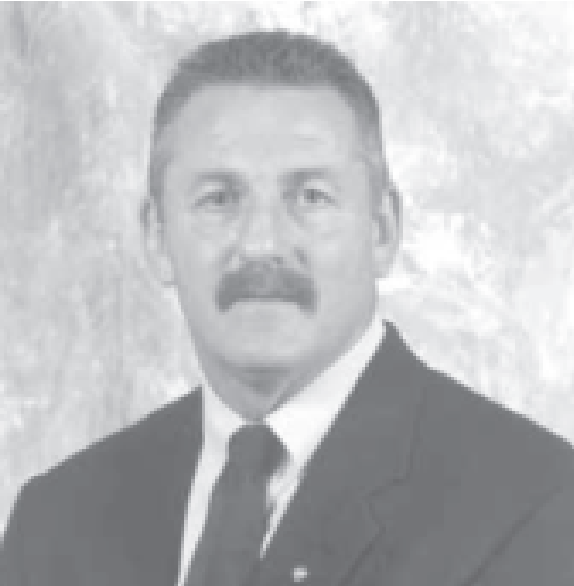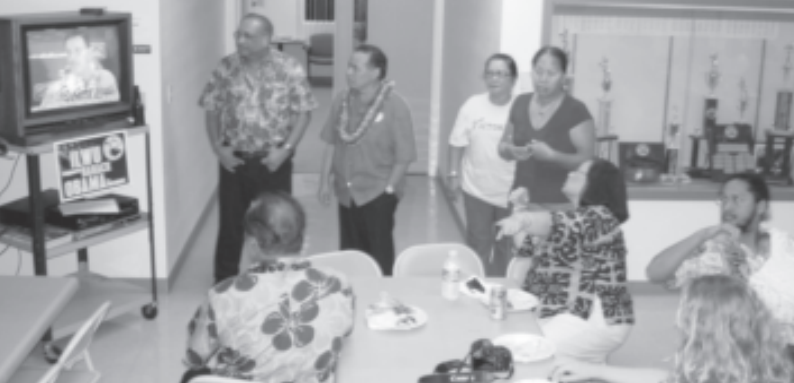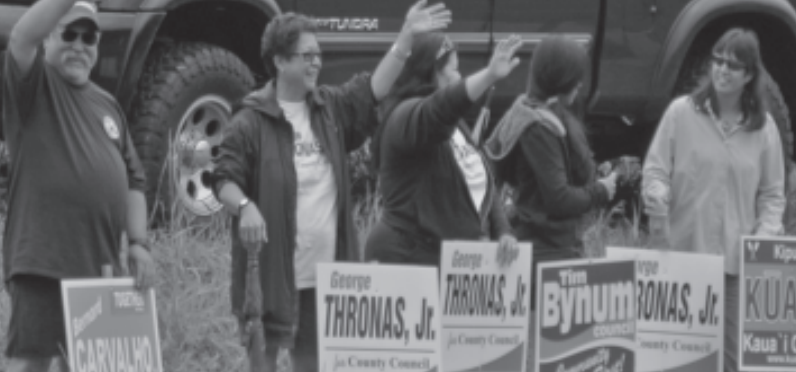On November 4, Americans made it clear that they want our country to move in a different direction.
There’s good reason to be hopeful. President-elect Barack Obama says he supports unions. He’s walked on a picket line. He’s worked as an organizer. He says workers aren’t getting our fair share while the rich and corporations have been getting too much.
He says we need more goodpaying jobs and should stop subsidizing companies that send jobs overseas. He says he’ll raise taxes for anyone making over $250,000 and cut taxes for the rest of us. That sounds like a breath of fresh air.
But after the dust settles from Obama’s victory, we’ll have some heavy lifting to do if we want to see real change. That’s because there’s a war being waged everyday between those of us who work, and those who own the places where we work, where we bank, where we pay our mortgages, and where we shop. It’s what we call the class struggle, but whatever word you use today, it’s as much a fact of life today as it was 75 years ago when our union was founded. Looking back at our history suggests that we can’t afford to sit on the sidelines – especially when an opportunity like Obama’s election comes along.
When Franklin Roosevelt was elected president in 1933, workers had been organizing unions for decades, but they weren’t making much progress against vicious employers who hired thugs and had laws and courts that were stacked against workers. Roosevelt called his campaign for change the “New Deal.” He put millions of Americans to work, kept millions more from starving, honored working families instead of worshipping CEO’s, and empowered workers and their unions. Within a year of his election, Roosevelt’s administration had approved the ILWU’s historic coastwise longshore agreement that followed a general strike in San Francisco and the killing of six brothers who gave their lives in waterfront struggles. The following year, in 1935, Roosevelt signed the National Labor Relations Act that made unions legal and required employers to recognize them and negotiate contracts
It’s doubtful any of these changes would have happened if activists hadn’t been out there organizing unions, holding strikes, or organizing the unemployed to protest in the streets. The role that ILWU organizers like Harry Bridges played was to push things as far as possible when times were tough – and then further when new opportunities arose – such as Roosevelt’s election and the passage of new labor laws. The ILWU’s success required both factors to be successful: militant organizers like Harry and sympathetic politicians like FDR.
We’re not living in the 1930’s anymore, but there are some similarities worth considering. Decades of deregulation and unchecked corporate greed were at the root of both the 1929 Stock Market Crash and today’s financial crisis. Another common thread between then and now is that unions are declining just as they were in the early 30’s, along with falling standards for most workers. While unemployment today is nothing like it was in the Great Depression, there are concerns that it could get a lot worse.
What remains to be seen is whether unions today can rise to the opportunities created by Obama’s election in the same way that activists in the ILWU made their mark three generations ago when Roosevelt was elected. The ILWU is trying to meet our historic responsibility on several fronts.
First, we’re following through on our commitment to help new workers organize and join the ILWU. Our Organizing Department has scored some impressive victories during the past year: helping 600 workers vote to join our union at the Rite Aid Distribution Center in Lancaster who are now bargaining their first contract, helping dozens of security guards in the Northwest go union, and assisting IBU’s effort to organize Marine Spill Response Corporation workers in Long Beach and Tacoma. Soon, the 500 workers at Blue Diamond in Sacramento will be voting whether to join the ILWU. Local 142 in Hawaii also scored a major organizing victory for hundreds of hotel workers in Princeville, Kauai, who won their first contract this fall. Each of these campaigns has required an immense focus of energy and resources. Last month, Obama sent the Blue Diamond workers a personal message of support. We’ll know in a few weeks if his message of hope can overcome the climate of fear and employer threats that have plagued Blue Diamond workers for years.

Robert McEllrath
International President
Second, we have to help Obama follow through on his promise to pass the Employee Free Choice Act (EFCA), the new federal law that would allow workers to join a union without being threatened or fired. The law already passed the U.S. House of Representatives, but a minority of 40 U.S. Senators (including John McCain) killed it in the Senate. We need 60 Senators who will vote for the EFCA so Obama can sign the bill and make it law.
On November 4th, we won new support for EFCA when voters in Oregon, New Mexico, Colorado, and other states chose Senators who care about working families. But even with those victories, we’re still a few votes short. Getting those last few votes for EFCA could require one of the biggest fights in our lifetime. Big business just spent millions of dollars attacking candidates who supported EFCA in this last election, and they’ll continue fighting us in the months and years ahead.
Finally, Local 13 members set an example for all of us by collecting more than a thousand petition signatures for the EFCA during the past few weeks. The effort by Local 13 members along with other ILWU locals, combined with thousands of union members around the country, has generated over a million petition signatures. Those petitions will be presented to President-elect Obama in the coming weeks.
Hundreds of ILWU members worked hard during the past year to elect President Barack Obama, Vice President Joe Biden, and other candidates who pledged to help working families. All that unglamorous work of phone banking, precinct walking, and envelope stuffing has made new opportunities possible. We can’t sit back now – let’s finish the job and keep up the pressure to deliver the kind of change that working families and America need now.
An Injury to One is an Injury to All
Involved members help win elections

Election night on November 4, 2008. Maui members, retirees, and endorsed candidates gather at the Maui ILWU Union Hall in Wailuku to thank the many volunteers and to watch the election results on television. Barack Obama’s early and decisive lead put everyone in a happy mood. There was some tense moments as some races were close, but nearly all ILWU endorsed candidates won their elections.

Kauai ILWU members help endorsed
